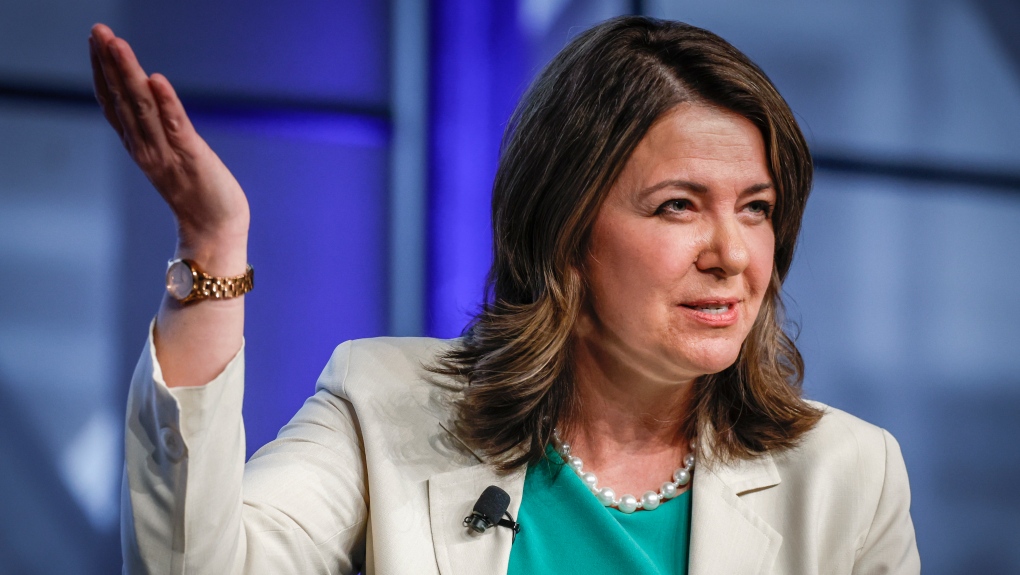EDMONTON, Alberta (Reuters) – Danielle Smith’s United Conservative Party (UCP) won the Alberta provincial election yesterday, securing another four years in power in Canada’s largest oil-producing region, and immediately fired a warning shot at Prime Minister Justin Trudeau over climate change.
The UCP defeated Rachel Notley’s left-leaning New Democratic Party (NDP) in a closely-fought election that focused on affordability and healthcare, but the UCP will return to the legislature with a diminished caucus.
Smith used her victory speech in Calgary to take aim at Trudeau.
“My fellow Albertans we need to come together no matter how we have voted to stand shoulder to shoulder against soon to be announced Ottawa policies that would significantly harm our provincial economy,” Smith said.
Trudeau’s government is aiming to cut carbon emissions 40-45% by 2030, but will only be able to achieve its climate plan with significant reductions from Alberta, the highest-polluting province.
Alberta’s oil sector produces the majority of Canada’s 4.9 million barrels per day of crude.
Smith is fiercely opposed to a Liberal plan to cap oil and gas emissions, arguing it will lead to a production cut, and the federal goal of a net-zero electricity grid by 2035.
She called on Trudeau to halt those climate policies, warning he would “strain the patience and goodwill of Canadians in an unprecedented fashion”.
In a note published last week, BMO Capital Markets analyst Jared Dziuba said the UCP is committed to decarbonization, but at a slower pace and lower cost than the NDP would have been.
Notley conceded defeat in a speech before supporters in Edmonton, in which she congratulated Smith and noted the NDP would add at least 10 new lawmakers and form one of the largest official oppositions in Alberta’s history.
“Now although we did not achieve the outcome that we wanted but we did take a major step towards it,” Notley said.
Tallying the votes took much longer than usual, with the result being called by television networks more than three hours after polls closed. Elections Alberta, the official body responsible for administering the election, said some voting locations closed late to accommodate all voters in line.
UCP supporters were undeterred by a series of controversies since Smith became premier in October, including a report from Alberta’s ethics commissioner this month that said the premier breached conflict of interest rules by discussing a pandemic-related prosecution case with her justice minister.
The UCP’s victory also cements a shift to the right in Alberta politics. The western province has traditionally been a bastion of conservativism but Smith also garnered support from a growing Alberta populist movement spurred on by opposition to pandemic-era public health restrictions and distrust of the federal government in Ottawa.
Her government will be bolstered by robust oil prices that are enabling Alberta to pocket record resource revenues. Even so, provincial unemployment at 5.9% sits above the Canadian average of 5%, which is partly a hangover from the energy sector downsizing during the 2014-15 oil price crash, and the healthcare system is under strain.
During the election campaign the UCP promised to enact a law guaranteeing governments cannot raise personal or income taxes without approval from Albertans in a referendum.
The government is also looking into policies like Alberta leaving the Canadian Pension Plan, which all Canadians have to pay into, and replacing the national Royal Canadian Mounted Police with a provincial force.









